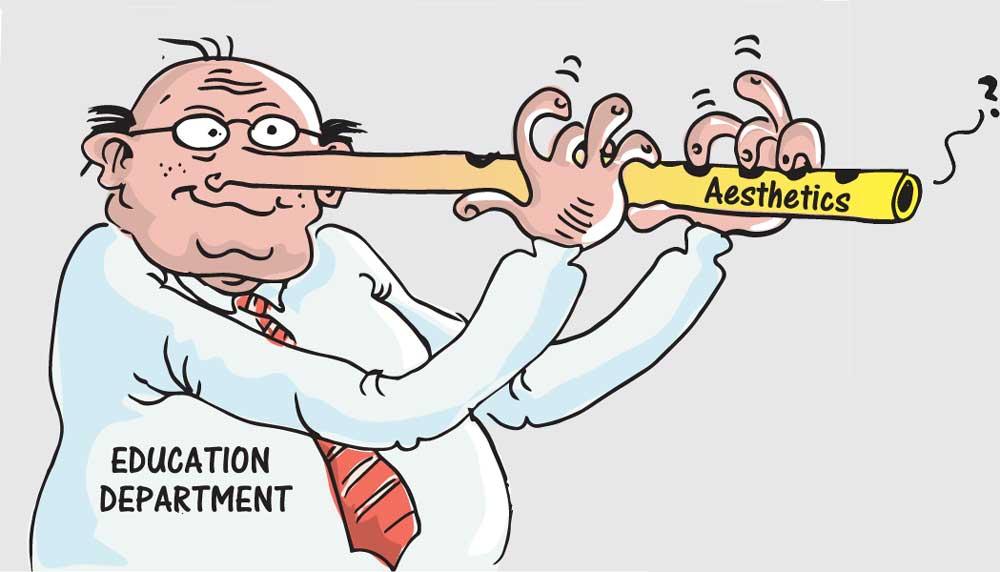Reply To:
Name - Reply Comment

During the past two weeks there was much concern and debates about a move by the government’s education ‘arm’ to remove aesthetic subjects from the school curriculum. There is enough literature published regarding this move which explains some of the Education Department’s planned reforms for the subjects taken up for the GCE O’ Level and A’ Level Examinations. The Education Department has now hurriedly used its media contacts to notify people that it has no such intentions.
The Education Department also specifies that there is false propaganda being spread that it plans to remove the aesthetic subjects from the school syllabus. The department warns the public of such propaganda which it terms as ‘sinister’. According to sources feeding the public and some sections of the media with information, the Education Department did post such information regarding education reforms and the removal of aesthetic subjects on its official website. Anyway, the department’s denial of this news and the subsequent acceptance of the value of aesthetic subjects in education underscore the need for such subjects in producing a complete human being. The false propaganda – which is how the government sums up this news – affords us an opportunity to talk about aesthetic subjects.
According to the debates on the current issue, there was much concern because traditional aesthetic subjects like art, music and dancing were to be removed from the GCE O’ Level Examination syllabus. This change was to be made applicable starting with the year 2025. Pilot programmes regarding this change were to be initiated starting the year 2026. And the number of subjects that must be offered at the O’ Levels in the future was to be reduced to ‘seven’ (7); in keeping with the plans for reforms in education.
The importance of ‘Arts’ in schools has been a topic for debate. There was one national leader who asked whether studying Arts would serve any purpose in a person’s career. But just recently, the present President of Sri Lanka, Ranil Wickremesinghe, was quoted saying that he has memories of attending the same dancing school where former President Chandrika Kumaratunga was also a student. And the irony is that it is under Wickremesinghe’s regime that we get to hear all these stories, or rumours (as the government puts it), that aesthetic subjects are to be scrapped. Just for the record, we saw some posters put up in the suburbs of western province where teachers are making a plea to retain aesthetic subjects in the curriculum.
Rupavahini, one of the giants among the state electronic media outlets, featured Ajantha Perera, an expert in the pottery industry, on its ‘Nuga Sevana’ programme on July 18. Perera underscored the need of focusing on methods of innovative learning outside the classroom to enhance knowledge and grow as a human being. Perera once said at a television interview that though his expertise is in pottery and has had a limited school based education he has the ‘buying power’ to employ a chartered accountant in his business.
This is a country where its rich history can be traced through its art. From Buddhist murals in temples, sculptures in Hindu kovils to Gothic art in churches, Sri Lanka boast of a set of artists who made art their profession and carved a niche for their aesthetic work. And, unlike in years before the computer and the internet existed, the present day artists – who have the potential to apply themselves – are minting money through their works.
The government has laid to rest all this talk regarding the removal of aesthetic subjects from the school syllabus. Right now we get to hear that the Department of Examinations has announced the dates for the practical tests for candidates who have applied to sit for the 2023/24 G.C.E O’ Level Examination.
These talks about reforms in education and elimination of certain subjects will surface from time to time and there is no stopping that. But we must remember what our ‘Master Potter’ Perera said at his latest TV interview when he corrected the presenter of the show for labelling him as a businessman. “Call me a good human being,” Perera said. Let’s make a toast for those words!